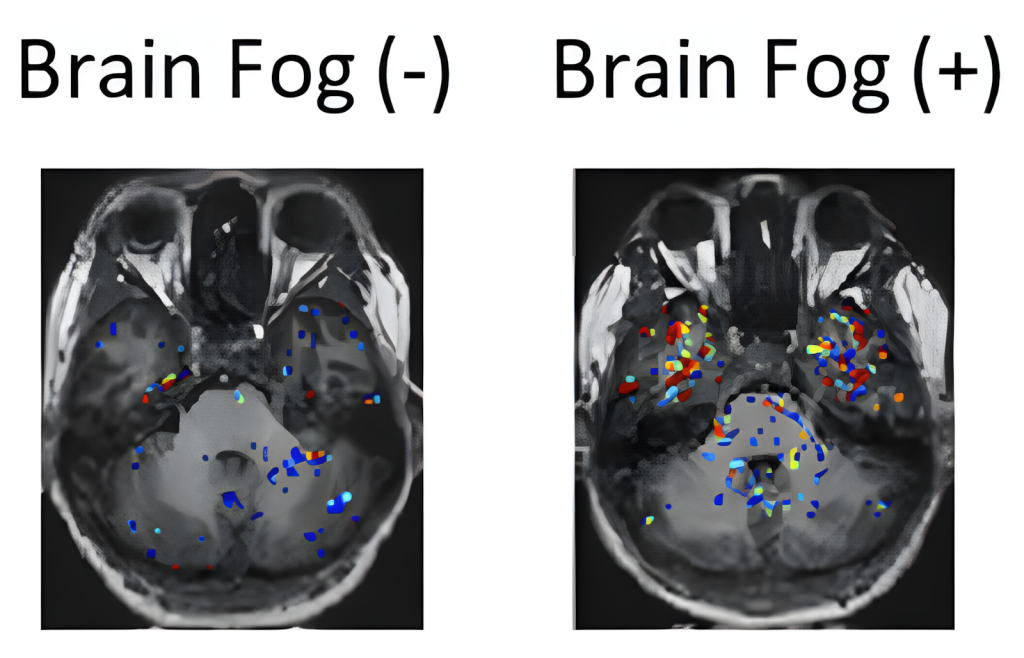Brain fog is a term used to describe the feeling of mental cloudiness that can make everyday tasks challenging. It’s not a medical diagnosis but a symptom that can be caused by various conditions such as stress, ADHD, allergies, pregnancy, or even chronic illnesses. Below, we explore five key warning signs of brain fog, along with practical strategies to manage and alleviate its effects.

Warning Signs of Brain Fog
- Low Energy
A persistent lack of energy is a hallmark of brain fog. Tasks that were once easy can feel insurmountable, leaving you drained even after minimal effort. This fatigue isn’t necessarily solved by rest, as it often stems from mental, rather than physical, exhaustion. - Impaired Cognitive Function
Brain fog often manifests as difficulty solving problems, processing information, or performing calculations. The ability to make decisions may also feel impaired, leaving individuals frustrated or overwhelmed. - Trouble Concentrating
Staying focused on tasks or conversations can feel like a battle. The mind may wander, making it hard to complete even simple activities. Neuropsychologists liken this to trying to navigate through thick fog while driving—it takes longer to get where you’re going. - Procrastination
Feeling mentally foggy can lead to delaying tasks. A lack of clarity or confidence in understanding concepts can make procrastination tempting. It’s especially common when combined with forgetfulness, as deadlines can sneak up unnoticed. - Low Self-Worth
Brain fog can contribute to feelings of inadequacy or failure. Psychologists compare it to a poor internet connection that slows down productivity. These challenges may lead to frustration and self-doubt, further exacerbating the issue.
Managing Brain Fog: Practical Strategies
- Prioritize Rest and Breaks
Neuropsychologists recommend incorporating “brain breaks” throughout the day. Engage in focused yet relaxing activities such as walking, listening to music, or meditating for 20–30 minutes. These breaks can recharge your mental capacity before fatigue sets in. - Improve Sleep Hygiene
Poor sleep is a major contributor to brain fog. Aim for 7–9 hours of quality sleep each night by maintaining a consistent bedtime routine, avoiding screens before bed, and creating a calming sleep environment. - Practice Stress Management
Stress often intensifies brain fog. Techniques such as deep breathing, mindfulness meditation, and setting realistic expectations can help. Seeking support from a friend, family member, or therapist can also provide valuable encouragement and accountability. - Fuel Your Brain with Proper Nutrition
A balanced diet rich in whole grains, lean proteins, and healthy fats is essential for optimal brain function. Stay hydrated and limit your intake of caffeine and sugar, which can cause energy crashes. - Cultivate Self-Compassion
Dr. Emily Greene, a psychologist, emphasizes the importance of self-compassion. Accept that it’s okay to slow down when needed. Judging yourself harshly can worsen symptoms, whereas empathy and understanding can provide relief.
When to Seek Professional Help
If brain fog persists despite lifestyle changes, it may be linked to an underlying medical condition such as a thyroid disorder, vitamin deficiency, or chronic illness. Consult with a healthcare professional for a thorough evaluation and tailored treatment plan.
Brain fog can feel overwhelming, but with the right tools and mindset, you can regain mental clarity and confidence. Remember, it’s not about pushing through the fog—it’s about slowing down, reassessing, and giving yourself the space to thrive.

